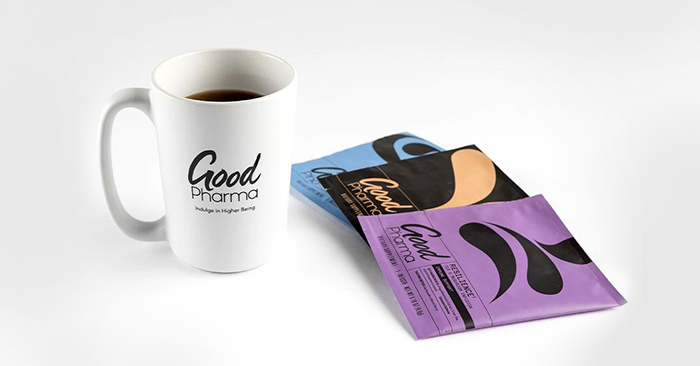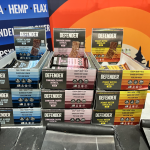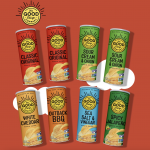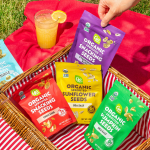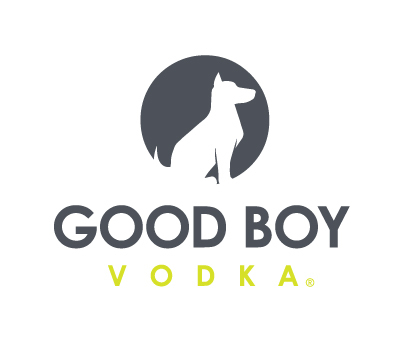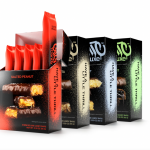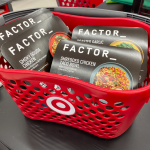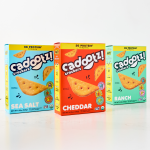Mighty Leaf Tea Founders Launch Functional Beverage Line
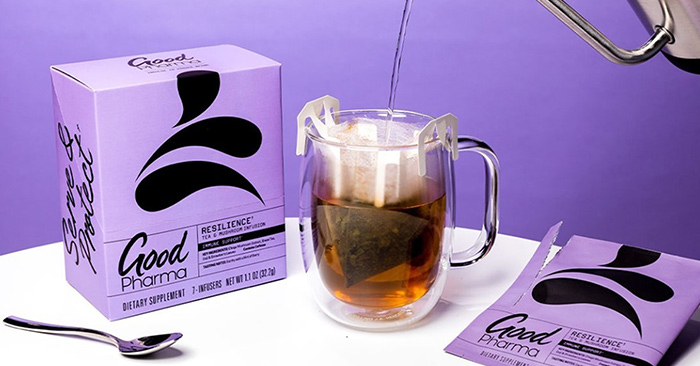
Having founded and sold one beverage brand, husband and wife Gary Shinner and Jill Portman are setting their sights on a new segment of the tea category: functional drinks. The two co-founders of Mighty Leaf tea this month launched Good Pharma, a line of coffee and teas infused with functional benefits.
Retailing for $22.75 for seven packets, the line includes SKUs based around immune support (made of tea and mushrooms), cognitive support (made of mushrooms and coffee) and sleep support (made of herbs and jujube seeds). Rather than instant powders or traditional tea bags, the products offer an on-the-go, disposable pour over that consumers must brew before drinking.
Shinner and Portman originally founded Mighty Leaf under the moniker Tea & Co in 1996 as a “Starbucks for tea” concept, but pivoted to a bagged tea line in 2000, taking investment from firm VMG in 2007 to expand from foodservice sales into retail.
After selling the company to Peet’s Coffee and Next World Group in 2014, Schinner and Portman (self proclaimed “bio-hackers”) traveled to India for a meditation retreat and delved even further into the role of Eastern medicine, Shinner said. Good Pharma, he added, is the culmination of this research and exploration — a combination of Chinese medicine, Ayurvedic practices and Western herbalism. The goal was to create a beverage that could help consumers lead healthier lives — but still embrace the experiential elements of Mighty Leaf.
“It came upon us that we had some unfinished business when it came to launching a product and a brand that really held these values of wellness and challenges the way we think about healthcare… which is not about proactive, currently, but rather reactive,” Shinner said. “It’s ancient formulas and ingredients meet modern science… it’s essentially Mighty Leaf mixed with a wellness product.”
The line will focus primarily on direct-to-consumer sales, with some foodservice placement in hospitals, spas and Silicon Valley offices — locations where Shinner believes consumers are likely to have an interest in “optimal living.” In the near term, innovation will largely be confined to new flavors and functional benefits, with possible expansion into other beverages and foods in the future, though Shinner said the couple plans to “challenge the pill and the powder culture” many other functional brands have looked to for their product lines.
A key focus was on creating an efficacious product that consumers could see immediate effect with, but also tasted good, Shinner said. To do so, the company has developed RXtracts, a proprietary extraction process that Shinner says results in higher bioavailability from the brand’s ingredients. A challenge, however, has been convincing consumers that just because a product tastes good, it still has functional benefits, Shinner said, with other competitive products either tasting great or providing functionality, but not achieving both well.
Though the price point is slightly higher than other tea or coffee options, Shinner believes that consumers are used to paying a premium price point for “organoleptically” satisfying beverages — and the company prefers to position the product as a good “value” for its benefits received.
While Shinner recognized that he could have attempted the Good Pharma concept under the Mighty Leaf brand years ago, he feels like advances in direct-to-consumer sales as well as understanding of functional benefits has made now the right time to launch the line.
“We saw this at Mighty Leaf and thought, someday we might become an entrepreneur again,” Schinner said. “[But it’s also] a product of where we are [as a culture]. People are much more into self care and measuring it…science is now validating so many of these practices, formulas and ingredients that people knew had an effect, but didn’t have the tools to prove it.”
